The State of the Photochemical Industry in 2023
Which Companies to Support, and Why
By Marwan El Mozayen, Charys Schuler, and Andreas Waldeck
[This article was first published in SilvergrainClassics magazine Issue #20 on September 25, 2023]
Update: Since printing Issue #20 of SilvergrainClassics, we are happy to report that Original Wolfen NC500 films have become available for purchase at many stores around the world. More color film for the community is always a good thing! We will continue to watch the ongoing legal proceedings around the ORWO trademark, and keep readers up to date.
In our dealings within the film photography industry and community, we hear quite a few rumors; we are also able to speak to many movers and shakers directly and ask questions. We pass on only reliable, verified information, hoping to help everyone make informed choices about which companies to support while indulging their film habits.
In our minds, there are currently three types of companies operating in the film photography world: the Old Guard, the Analog Believers, and, for lack of a better term, the Speculators. The Old Guard are mega-concerns which have shrunk under post-digital-revolution pressures but are still providing the same beloved and reliably high-quality products (for the most part). The Analog Believers are mid-sized companies owned by individuals that bleed silver halide. The Speculators are companies, many of which bear names with important legacies, which have recently been acquired by those who may be seeking to profit from what they see as an analog bubble.
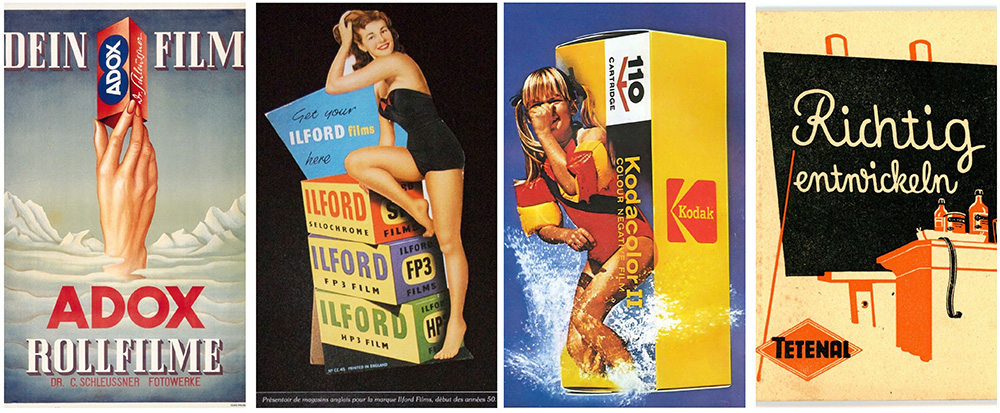
Kodak and Ilford
Kodak and Ilford remain the most visible Old Guard giants of the analog photo industry. The venerable companies have changed quite a bit since the digital revolution, of course; their company structures are sometimes difficult to understand, and various branches use the brand names for products that are now unrelated to Rochester, USA, or Mobberley, UK. However, the individuals in the upper management of both brands are approachable and responsive. They take great pains to be transparent about current company structures, even when they are not at liberty to talk about plans for the future.
“Ilford” is actually two main companies these days: Ilford Imaging and Ilford Photo. Ilford Imaging Europe currently offers a high-quality range of photo papers for non-darkroom printing, and three simple film cameras, two of which are single-use. The owners are Chugai Photo Chemical of Tokyo, Japan, and CR Kennedy & Co of Melbourne, Australia. The two partners have a combined history of 146 years in the photo industry.
Ilford Photo / Harman Technology is the result of a management buyout of the original Ilford company in 2005, which was then purchased by Pemberton Ventures, a UK investment group. This is the Ilford most analog photographers know and love, with gorgeous film stocks, darkroom printing papers, photochemicals, and other darkroom-related products.
Ilford Photo / Harman continues to struggle with adapting their film coating capacity to modern demands; the huge machines that ran until the early 2000s are no longer appropriate, but smaller machines sometimes struggle to keep customers and shops stocked. Also, Ilford Photo continues to operate out of its traditional stomping grounds in Mobberley, much of which is under ongoing modernization. But despite these challenges, Ilford does a lot to support the film photography community. The website has a valuable “Learning Zone” with technical articles, an online “Magazine” with interesting blog articles, a series of short films about inspiring photographers, and even project and educational grants. They are also very open about their factory, offering regular guided tours.
“Kodak” is also anything but monolithic. In addition to Eastman Kodak in Rochester, where all Kodak films are coated, there is Kodak Motion Picture, responsible for sales of cinefilm, and Kodak Alaris, which sells the Kodak films for still photography. (It’s important to note that almost every still film which is advertised as being “cinematic,” no matter what is on the label, is simply re-canned Kodak Vision3 cinefilm, with or without its remjet layer.) On top of this, there is also the Kodak Photochemical division, which was sold to the Chinese firm Sino Promise.
Recently, there has been a lot of speculation about Kodak Alaris being up for sale, and why. Also, the Sino Promise group is reported to have shut down, and several popular developing chemicals, foremost the HC-110, are currently unavailable.
But even with all this, “Kodak” remains the horse to beat in the film photography world. Unlike Sino Promise (which continues to be worryingly uncommunicative even with its own customers, including large photo labs) Kodak MP and Kodak Alaris both strive to give customers transparency. They release regular updates about supply, warn of upcoming cost increases when they are necessary, and also support filmmakers and photographers who work on film.
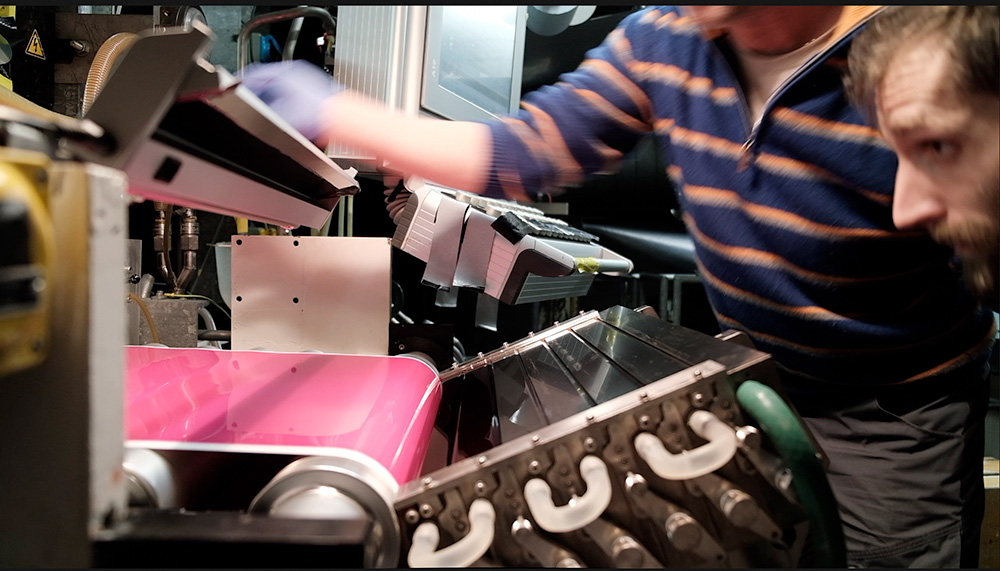
ADOX and Bellini
The Analog Believers are the heart and soul of our film community. Although they are certainly prudent businesspeople, their true motivation is to support film photography in a digital age. There are a multitude of companies that we could feature here, including Cinestill, Ferrania, JOBO, Heiland Elektronik, Zone Imaging, Negative Supply, etc. Fortunately for all of us, the list gets longer every day! We have chosen to feature ADOX and Bellini as examples of the Analog Believers who continue to provide professional-quality products made by small groups of passionate people. (It also made us smile to have companies which fit the “A B” group name.)
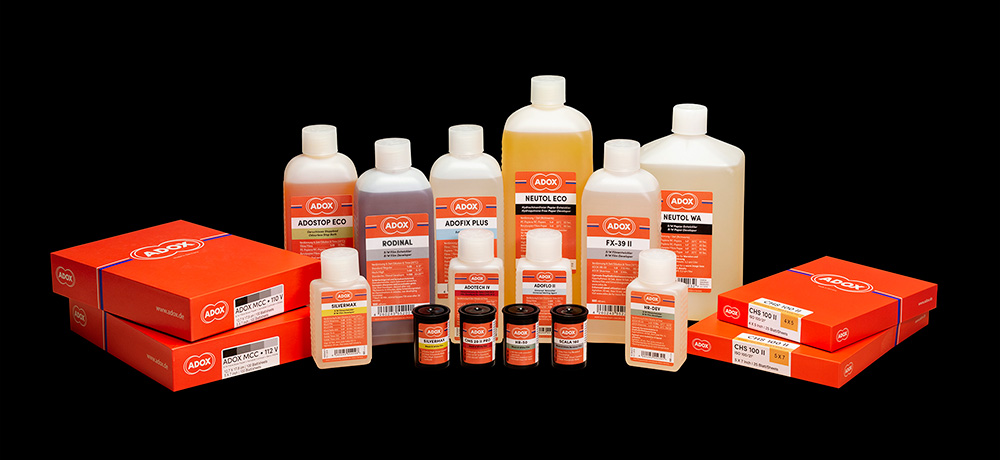
ADOX
We have told ADOX CEO Mirko Böddecker’s story before: Germany’s first importer of Foma and Efke, Mirko leaped into action when Agfa, Konica, and Forte collapsed, personally organizing the salvation of the emulsion-making machines and recipes. He did the same for the Cibachrome dyes, recipes, and a coating machine at a former Swiss Ilford factory a few years later.
Mirko started releasing products under the ADOX brand in 2003, at the apex of both digital excitement and cries that film was certainly doomed. By 2008, ADOX was a company with film finishing machines and photochemical production line under one roof. The entire operation was optimized for a smaller market from the start, with an ambitious long-term goal to offer the full spectrum of b&w and color films and chemicals.
Mirko’s financial concept is to reinvest 100% of the profits from his FotoImpex store into ADOX. He has never taken money out of the company in dividends, only paying himself a modest yearly salary. Mirko has also chosen not to take outside investors into the company; instead, ADOX accepts a slow and steady approach to R&D.
The costs of simply keeping his factory capable of producing films and chemicals are already impressive — €250,000 before production costs. He also invests in employees who carry forward a valuable knowledge base, managing to do so with less than ten full-time specialists in the photochemical division.
Mirko’s goal is to reach and maintain the quality level he remembers from Agfa. This, combined with the slow infusion of R&D funds from FotoImpex, means that every emulsion takes years to develop. The very first, Polywarmtone, took ten years, and although the next ones are going faster, the timeline is still extended. They also take extra care that each new film and photochemical meets or exceeds current strict EU environmental standards.
For those who would like to support ADOX, Mirko says don’t bother buying other brands’ films from FotoImpex — they hardly earn anything on those sales. However, profits from the sales of ADOX’s innovative Captura no-dust powder chemicals, film and paper developers, fixers, and other products all help future emulsions come into being. ADOX also has special gelatin photo filters which don’t bleach out or fade over time and are water-resistant; these filters are based on the Cibachrome dyes, so his impulsive rescue missions continue to support new products. And supporting ADOX could turn out to be important — Mirko says that if everyone else stopped making color films tomorrow, ADOX could take over!

Bellini
Bellini Foto is another company that was founded by a passionate film adherent and continues to be run by people who are committed to analog. The founder, Mr. Guglielmo Bellini, started his photochemical company in 1988, and his 50+ years of experience as a chemist stand behind all Bellini products. We saw Mr. Bellini enthusiastically sitting down with guests to chat about photography at informal cheese and wine gatherings during the final Photokina in 2018. Friends have visited the factory in Torgiano, Italy, and recommend the trip highly, both for the hospitality of the Bellini staff and the Umbrian food.
The current general manager, Philippo Abati, was kind enough to answer our email during his vacation. He wrote that Bellini is a small company but is aware of the developing global photochemical situation. Abati sees the company’s size as an advantage since it allows them to be safe and resilient. Bellini does not aim to compete with other companies, pursue aggressive price policies, or take advantage of confusing market situations. Rather, they hope to be able to step up and help to fill gaps while staying out of the spotlight.
Bellini’s lines of high-quality photochemicals are available in sets designed for use in professional labs and also in sizes suited to home use. The chemicals are available in many areas of the world, and distributors can be found on the Bellini website, bellinifoto.it.
Tetenal and ORWO
But now we get to the more controversial companies, the ones we have dubbed the Speculators. There are, unfortunately, a growing list of companies which fit this profile, companies with a proud history which didn’t navigate the changes of the last two decades successfully. These companies have been acquired by investors, some of whom have worked minor miracles, as in the case of Leica’s Andreas Kaufmann, and some of whom have dragged household names through the mud.
In our opinion, “click-bait” articles that are calculated to raise blood pressure, if not induce actual panic, rarely have any value to the film community. However, there comes a point when speculation can be supported by factual research, and it can be helpful to share opinions, even before the full situation is clear. This is particularly true in the case of the Speculators, who are rarely transparent about their plans.
“Locust” has become a widely-used term for investors who buy a struggling company, often through a Private Equity company, intending to extract a maximum of short-term profits rather than making the business viable in the long-term. Finance scholar Benjamin Braun called PE companies “extraction artists.”
For this extraction, the PE industry first collects money, mainly from rich private investors and funds. In the second step, struggling companies are bought, then broken up or merged with others, and “trimmed for yield”, which means that employees are laid off and everything that can be easily sold is converted to cash. In the end, the company is sold or insolvency is filed. The initial purchase is largely financed by credit, which is then charged to the acquired company.
PE companies are happy to invest in medium-sized companies with a clear, established business model; these companies hope to gain development options with the help of the investment. A long-term oriented entrepreneur will often opt for a course which makes it necessary to forego profits or even accept losses in order to retain his most important capital: the employees, the company know-how, and the customer base. For PE companies, there is only the vision of a quick, high return on the investment capital. Optimizations are not seen in terms of investments in product or process development, but instead follow the easiest path to short-term gains.
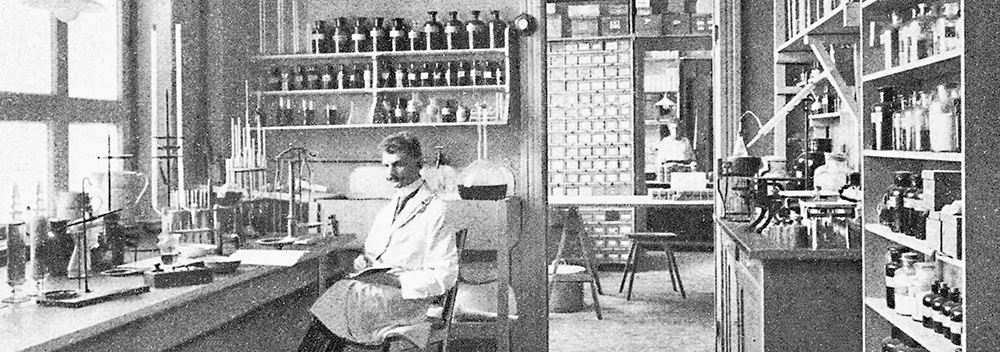
Tetenal 1847
Tetenal is the oldest company in the photographic industry. Its origins date back to 1847 in Berlin, and the Tetenal brand was registered in 1909. Tetenal has manufactured photographic products or supplied preliminary products and raw materials for almost all well-known manufacturers. When Tetenal became insolvent in 2018, this was a major problem for the entire photochemical industry; even Hollywood A-listers got on emergency calls, worried about continued prompt daily development of miles of film.
Between 2018 and 2019, Tetenal was restructured under the leadership of Grantiro Initiative, a management consultancy firm from Vienna, led by Peter Rasenberger. The repositioning was announced to be a focus on Tetenal’s photochemical products for analog photography and cinefilm. In May 2019, Tetenal 1847 was founded, which immediately resumed active business. Several managing directors were recruited from the former Tetenal company’s employees; it seemed like a so-called “management buyout”.
However, 100% of the shares of the newly established Tetenal 1847 were acquired by a Hamburg-based holding company, HIH (Hamburg Innovation Holding), which merged with an Irish limited company, DIH (Dublin Innovation Holding) in July 2023. The reason that a company like Tetenal, long seated in Germany, would establish a place of business in Ireland is easy to explain: the company tax in Ireland is a comparatively low 12.5% compared to 25% in Germany. All brand and trademark rights related to Tetenal 1847, such as the brands “Tetenal”, “Neofin”, “Ultrafin”, etc., are now owned by DIH. The owner and managing director of this company is the management consultant Peter Rasenberger.
Tetenal 1847’s Chemical Production
Since the reestablishment of Tetenal 1847, several new products have been developed, such as the Parvofin developers in tablet form. At the same time, however, there have been increasing problems with delivery times and availability for core products. Many products are still not available today.
In the summer of 2022, chemical production at Tetenal 1847 was spun off into a newly founded company, Norderstedter Chemiewerke. Products for Tetenal 1847 itself, as well as for other photographic companies, were to be manufactured by the new company. The main shareholder is also the Irish DIH, with Peter Rasenberger as managing director. Just a few months later, in February 2023, Norderstedter Chemiewerke filed for insolvency.
Since Tetenal’s insolvency in 2018, most of the senior chemists have left the company; some have moved to competing companies, some are freelancing. In July 2023, the sales management staff was dismissed.
We do not claim to know what the future holds for the historic company. We have had long, inspired conversations with Mr. Rasenberger, who spoke glowingly about the analog resurgence. But the bare facts of the commercial registry, staffing cuts, and current product availability do not support a rosy outlook. Mr. Rasenberger now owns many valuable brand names which could be sold off even if the company no longer produces any products.
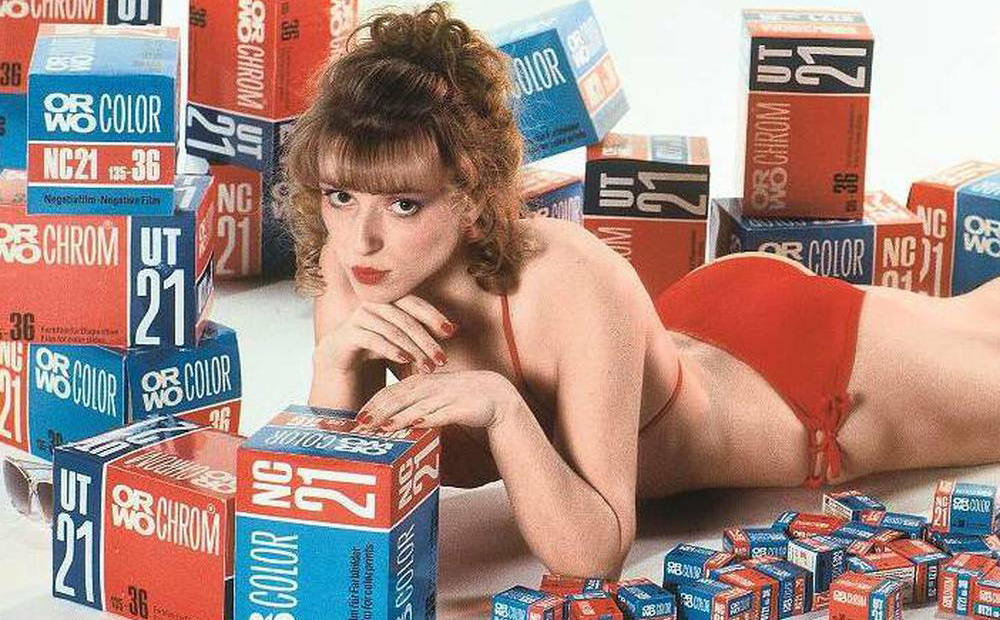
Update: Wolfen NC500 is now available in shops
ORWO
If you look for film online, you may get the impression that there is a well-known company called “ORWO” with a long, continuous history, which currently produces films and distributes them worldwide. The actual situation is more nebulous. To understand the current circumstances, we need to explain the complex history of ORWO.
The ORWO brand originated with the Agfa company which built a factory for coating films in Wolfen, Germany in 1909. Wolfen is in the area which became East Germany after WWII, and films were produced there under the name “Agfa” until 1964. But as of 1964, the brand name “Agfa” was used exclusively by the West German Agfa company, and the new brand name “ORWO” (ORiginal WOlfen) was created for the East German products from Wolfen.
The production of ORWO films carried on until the fall of the Berlin Wall. There were several attempts to maintain film production at the Wolfen site, but in 1994 the Filmfabrik Wolfen declared insolvency — no films have been coated in Wolfen since that time. Until 1997, ORWO still produced films; these were no longer coated in Wolfen, but brought in from other manufacturers.
In 1998, the newly founded FilmoTec company took over the old ORWO machines for confectioning and packaging films. ORWO’s trademark and brand rights were taken over by a different company, ORWO Media, which was also founded in 1998. ORWO Media did not produce films, but instead offered other photo services (photo books, mugs, calendars, development services, etc.). In 2003, the related ORWO Net was founded; ORWO Net currently holds the European trademark and brand rights for ORWO.
In 2005, AGFA Photo filed for insolvency. Former AGFA managers took over parts of the production and founded the InovisCoat company to coat film material near Düsseldorf. InovisCoat manufactured film for various companies, including FilmoTec, still located in Wolfen. In 2012, InovisCoat renamed itself InovisProject to reflect its new owner, Impossible Project, and in 2020 the name was changed to Polaroid Film.
In 2010, at the same location near Düsseldorf and by the same team of former AGFA managers, the company InovisPhoto was founded. In 2012, that company took over the name InovisCoat when the original InovisCoat became InovisProject. In 2020, investor Jake Seal took over both this second iteration of InovisCoat, and also FilmoTec in Wolfen, through his associated company Seal 1818.
Jake Seal
Jake Seal is a businessman and movie producer who is known for producing Ethan Hawke’s directorial debut, Blaze. His successful Black Hangar Studios’ post-production facilities are near London, and he also leads ORWO Studios in Jackson, Louisiana — he is the head of a group of companies with the name “ORWO,” including ORWO Medical. Mr. Seal has made newspaper headlines recently while involved in a lawsuit with actress Eva Green, which the actress won. The judge, as part of his statement, wrote that Ms. Green had said very unpleasant things about Mr. Seal in private WhatsApp chats due to “… a genuine feeling of concern that any film [i.e. movie] made under Mr Seal’s control would be of very low quality.”
Seal’s aim in buying InovisCoat and FilmoTec was (and perhaps still is) to manufacture and distribute photographic still film. (ORWO-branded cinefilms are currently available and in circulation.) To handle distribution, Jake Seal’s father, Michael Seal, founded ORWO Limited in the UK in May 2021, which operates an ORWO online shop at the URL orwo.store.
In February 2022, ORWO Limited announced new color and black & white still films on their website. At the same time, they announced (with less fanfare) that their German companies FilmoTec and InovisCoat would file for insolvency. Insolvency proceedings opened in April 2022, followed immediately by the insolvency of parent company Seal 1818 in May 2022. Just a few months later, in October 2022, ORWO Limited introduced its first NC500 color films — which, however, could only be obtained in very small quantities from the German distributor.
The trademark and brand rights to “ORWO” for Europe, however, are still held by ORWO Net, not by any Seal-owned concern. In the summer of 2023, there was an extensive relaunch of ORWO Net, where various photo products and services are again bundled under the name “ORWO”.
ORWO Today
So, now we have finally arrived at the present-day situation: the name “ORWO” is being used by two groups of companies. While ORWO Net claims the European rights to the name but does not produce film, the companies belonging to Jake Seal claim to produce film in Germany and use the ORWO logo for this purpose on websites and in the store. ORWO Net and the Seal companies have, therefore, been in various legal disputes since 2020.
The facts, as we know them, are: There are no facilities to coat film in Wolfen. All relevant companies owned by Mr. Seal filed for insolvency in 2022. The new still films are either unavailable or only on stock in very small amounts, and as we go to print in August, 2023, none are available on the orwo.store website except as a “pre-order”. Online photography groups, and ORWO’s own Facebook posts, are filled with searches for information about how to get customers’ money back for orders placed as far back as eighteen months ago, and reports of film stock which did arrive but was poor quality and rumored to be outdated.
The ORWO sales website states that the photographic films are confectioned at FilmoTec in Wolfen, but past statements from ORWO Limited indicate that the films which have been sold to date were confectioned in Shanghai. A few months after all relevant companies filed for insolvency, a press release stated, “…our team has been actively working on the design of a brand new cartridging machine to be installed at our plant in Wolfen, Germany. …this machine can be built and ready for use within a few months!“ This was one of the last official updates, released one year ago in September, 2022. In December, 2022, they posted this final update: “We’ve finished manufacturing on THREE colour products and are lining up new black and white manufacturing runs for next year, as well. After a lot of hard work, we have finally resolved (forever) our bottleneck with the all important cartridging/spooling.”
Despite brief initial contact with Jake Seal’s assistant, we were not able to get answers to any questions directly from Mr. Seal or his associates. Some of the questions we submitted to Mr. Seal were: Who coats the films for ORWO Limited? InovisCoat? Polaroid Film? Or some other company altogether? Where are the films currently confectioned and packaged? When can we expect ORWO films to become available, and for existing orders to be fulfilled?
We don’t have enough information to assume anything about the future of ORWO film production under Jake Seal. But, in our opinion, the lack of transparency, combined with a pattern of insolvency filings in line with so-called “business locust” practices, does not inspire confidence.
Conclusion
SilvergrainClassics would like to state clearly that we are not accusing anyone or any company of wrongdoing. Many businesses choose to play their cards quite close to the vest but are completely aboveboard.
We would, however, encourage film photography community members to think carefully when choosing which companies they will support with their purchases. No one jumps for joy upon hearing about film price hikes; but consider being grateful that the Old Guard is still reliably chugging along. And there are so many small to mid-sized companies which are run by people who live and breathe analog and hope to share their passion in support of film! Buying their products supports the long-term vision of these entrepreneurs, and helps keep film financially viable and available for all of us.
These online articles are free – we see it as our contribution to the film photography community. You can support this content by subscribing to our awesome print magazine about the entire world of analog photography!
https://shop.silvergrainclassics.com/subscriptions/

